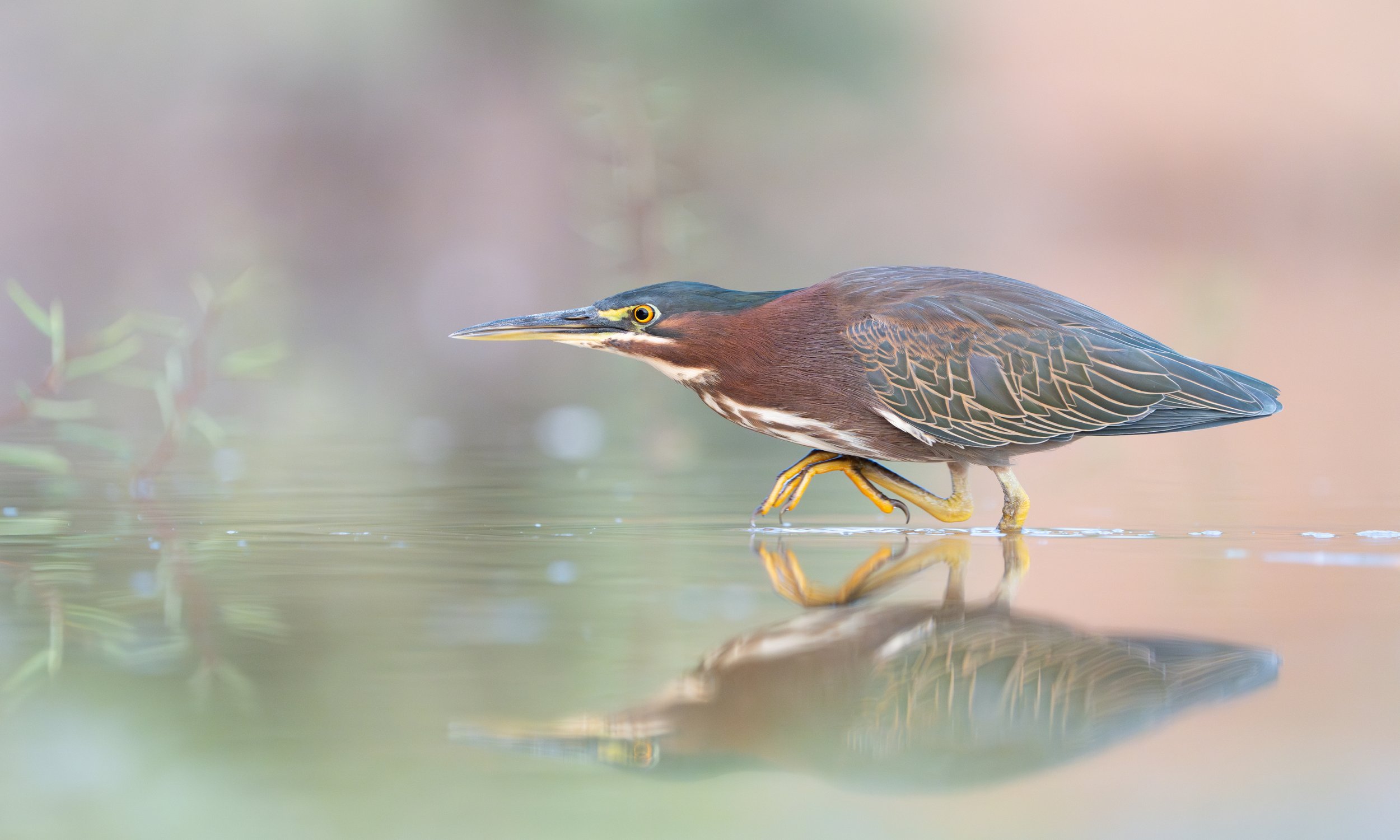
Photo Credit: Joshua Hogan, Cornell Lab of Ornithology | Macaulay Library
A Note from Skip Stiles, Founding Executive Director
“I’m Going Where the Climate Suits My Clothes - It’s Been A Great Time!”
August 14th, 2023
As you’ve probably heard by now, I’m stepping down after 16 years as the executive director of Wetlands Watch. Mary-Carson Stiff has taken over after a well-planned transition process, putting the right person in the job.
When I turned 70 a few years ago, I wanted to ensure that the quality work Wetlands Watch was doing would continue. Mary-Carson, one of the brightest and most talented people I have worked with, was the natural choice to lead Wetlands Watch and continue our mission.
Besides, it’s time for the old guys to get out of the way and let new folks take over!
Its been an amazing ride, so far. After working in Congress for a couple of decades. I was consulting on environmental and science policy when my oceanographer spouse, Margie Mulohlland, landed a professorship at Old Dominion University. We moved to Norfolk in 2000 and one of my consulting collaborators hooked me up with Jay Taylor, major creator of Wetlands Watch. That was the start of a journey that has lasted over 16 years, longer if you count my time on the Board of Directors when we were an all-volunteer group.
We began working on climate change adaptation back in 2006, after inviting Dr. Carl Hershner of the Virginia Institute of Marine Science to brief us - shock us, actually - about wetlands losses due to sea level rise.
We sat down with the data and figured Virginia would lose 50% - 80% of its vegetated tidal wetlands by century’s end - lower losses if we could get folks to move away from the shoreline and let the wetlands “move uphill;” higher losses if we kept doing the same old thing. Since then, we have higher estimated rates of sea level rise that are almost double those earlier ones, meaning we’ll see these wetlands losses by about 2060. And with little progress on adaptation and retreat, I fear we’ll see the higher range of losses unless we hurry up.
Wetlands Watch is not a “drive-by, drop the study and run” group, so after our sobering projections of marsh loss, we started the tough work trying to save Virginia’s coast from sea level rise. At that time Wetlands Watch was the only group in the country doing climate adaptation work at the local level.
Back then we couldn’t say, “climate change,” or even “sea level rise.” We had to call it “recurrent flooding”, and even at that I’d get stone silence at rural service club lunch talks on the challenges we face.
But we’re starting to see results from our efforts.
Today, after lots of hard work and strong partnerships, Virginia is ahead of most states in its response to climate change. We are one of a few states that has a statewide flood fund and the only one that draws its money from the sale of carbon credits (for now anyway – more on that in a bit). We’ve included sea level rise in our tidal shoreline regulations and soon we’ll consider climate change in our septic permitting – the only state in the country doing that. And the Virginia Department of Transportation has developed new engineering standards to take climate change into account – again the only state we can find that is taking these steps.
But the biggest progress has been with local governments, which have the lion’s share of responsibility to address our changing climate. Localities across Virginia are responding to the changes they are seeing. We have developed and value our partnerships with localities, the primary focus of our work.
We’ve assembled a group of dedicated and creative staff at Wetlands Watch and have grown our programs strategically to meet the needs of Virginia’s citizens. We have focused our programs on those communities facing the greatest risk and having the fewest resources, seeking to move lower income communities to the front of the line as funding becomes available.
The work we have done, and will do, is rewarding and very challenging. There are no guidebooks for this because humans have never experienced the changes we are seeing. In my first career as a senior staffer in Congress, I thought I was doing grand, creative work. None of that compares to the innovative policy work Wetlands Watch has done and will continue to do.
And no, I’m not really leaving Virginia. Besides, with the climate changing, I’m not sure where the climate suits my clothes anymore.

